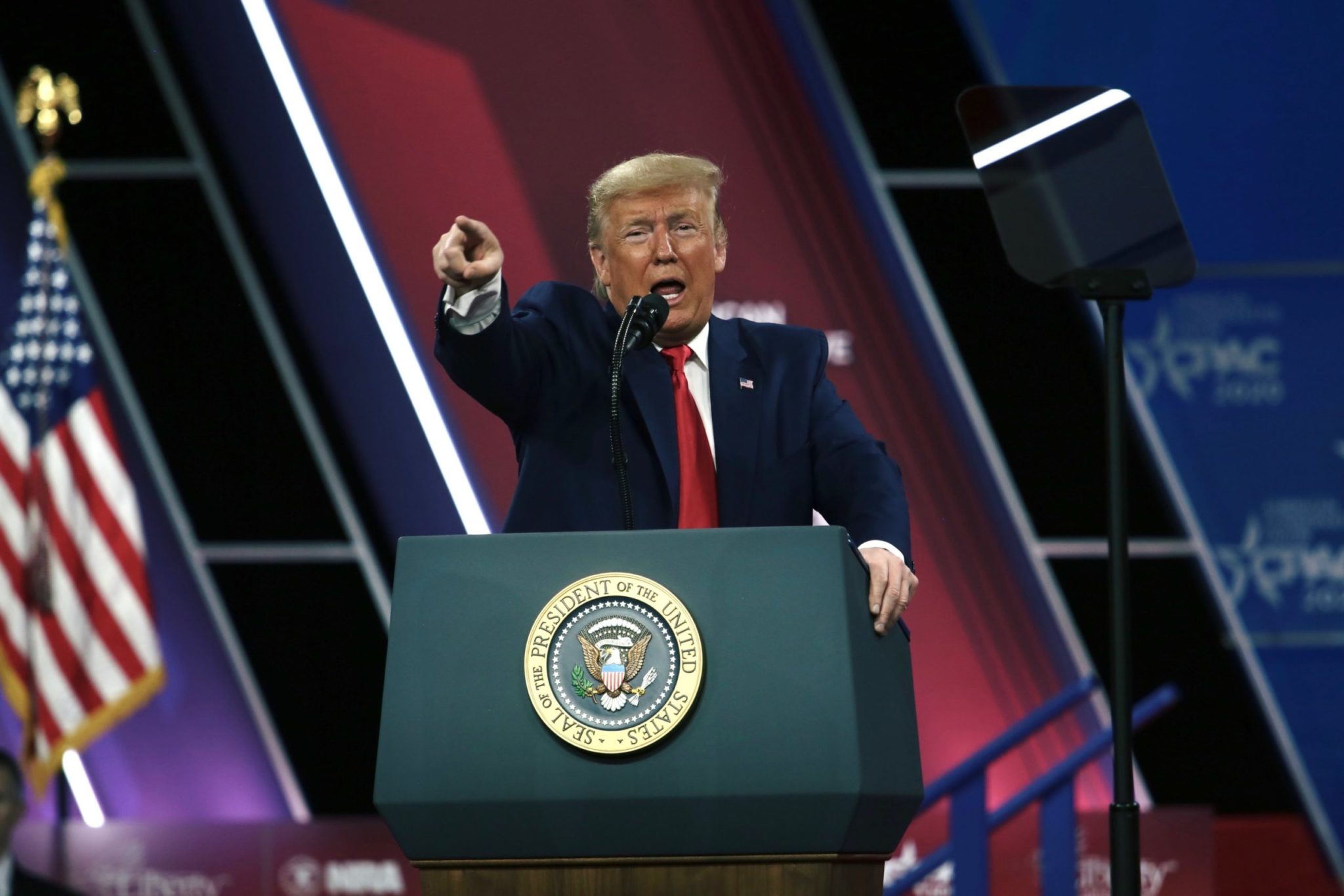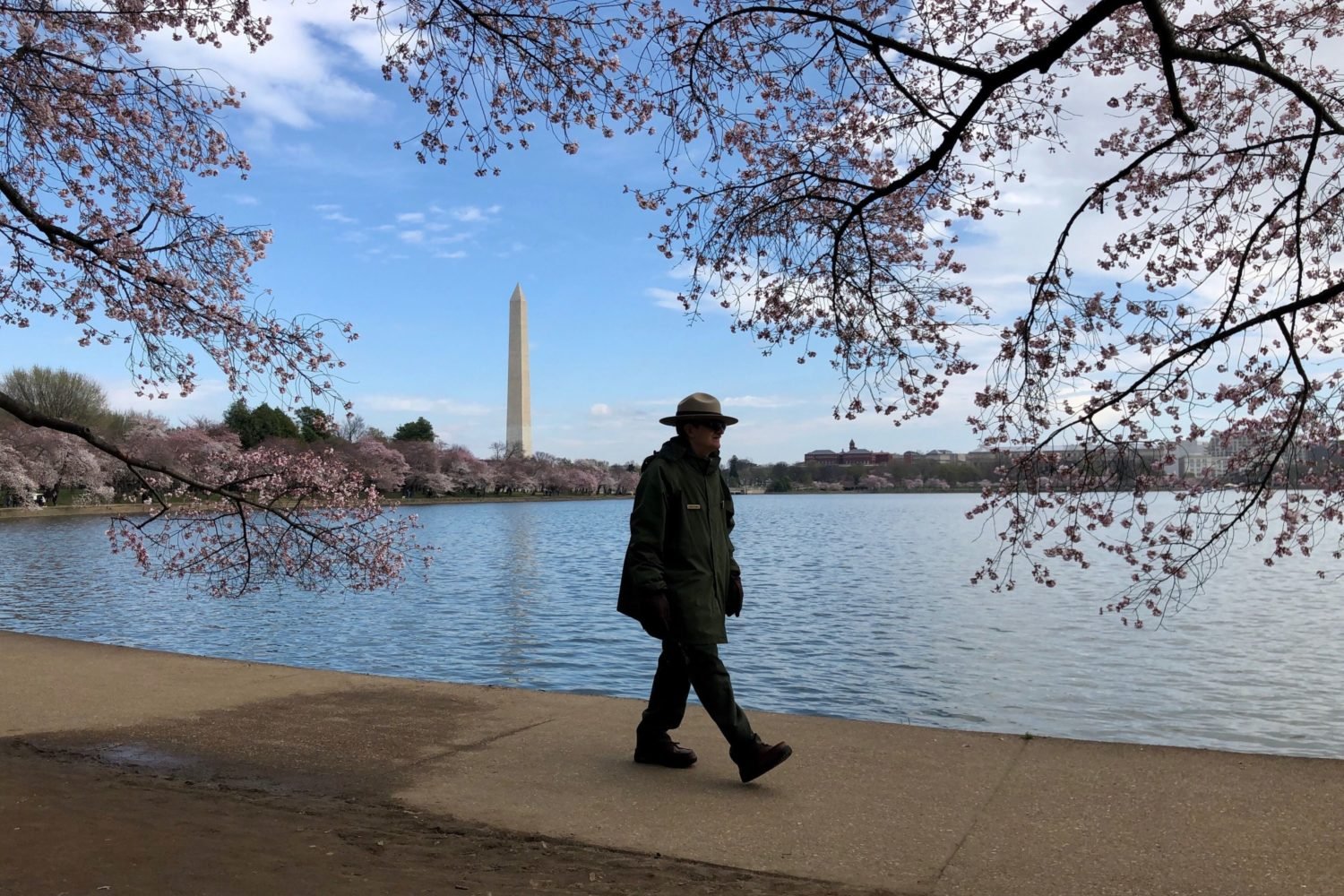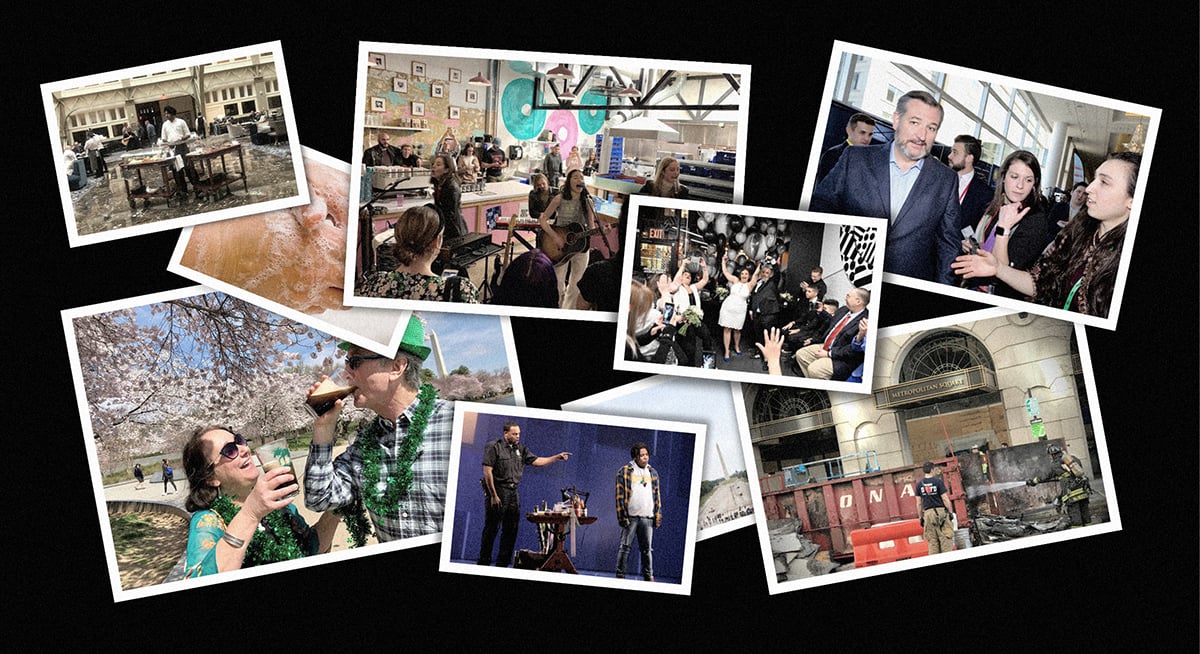About Coronavirus 2020
Washingtonian is keeping you up to date on the coronavirus around DC.
There are lots of reasons to suspect President Trump’s desire to get the US economy back on its feet by Easter isn’t rooted in any deep theological conviction, or even that he’s especially aware of the holy day’s association with rebirth. Trump told Fox News Easter is a “very special day for me,” but this is also a man who referred to the sacrament of Eucharist as when he partakes of “my little wine–which is about the only wine I drink–and have my little cracker.”
Still, the depth of Trump’s devotion to the most important day on the Christian calendar seemed worth investigating, so I called Michael D’Antonio, author of the 2015 book The Truth About Trump, which goes into what must be as much detail as is possible about Trump’s spiritual education. The Trump family occasionally visited Manhattan from Queens to attend Norman Vincent Peale’s Marble Collegiate Church, D’Antonio writes, where Peale “taught that salesmanship was next to godliness and ambition was practically a form of worship.”
Peale’s teachings rhyme what would come to be known as “prosperity gospel,” an idea that wealth is a sign of God’s favor that found purchase in much of American evangelicalism, and he “never taught anything about sacrifice or sinfulness,” D’Antonio says. The association of faith with prosperity “might be the one thing that Trump would have taken from his religious experience as a kid.”
Of course, there’s another possible explanation, one that correlates with the strange announcement from the director of Trump’s DC hotel promising “a HUGE celebration in a few weeks” Tuesday, just as US citizens were absorbing their President’s newfound interest in Easter, which is April 12 this year. The Trump Hotel boasted of “Record numbers” for its Easter brunch last year and flogged reservations for it as recently as March 10, just before the crisis occasioned by the novel coronavirus began to take a meat ax to the US economy. The price of that brunch in years past? $125 per person, according to the Washington Post.
Record numbers for our @TrumpDC Easter Brunch tomorrow…Still a few seats available…#EasterBrunch #Easter #holidayweekend #onlyfivestarhoteldowntownDC #luxuryhotel #luxurytravel https://t.co/9mvYCqf2dz
— Mickael Damelincourt (@mdamelincourt) April 20, 2019
I asked D’Antonio whether a wildly successful Trump International Hotel offering might be able to influence the President’s desire to get the economy moving long before public health officials deem wise. “The idea that if there’s money to be made on Easter Sunday by Trump or anybody else makes a lot of sense to me,” he says. “He probably is thinking to himself, How many Easter brunch spots am I going to lose?”
Still, even for Trump, that seems a bit cavalier. The thing to remember, D’Antonio says, is that the President is “a very shortsighted person, so what he does is he plays for time. So I could imagine him being willing to risk the resurgence of the virus once or twice in order to goose the economy between now and the election.”
Peale, D’Antonio wrote in his book about Trump, “rarely touched on Christian concepts of sin, suffering, or redemption. He preferred instead to preach that followers ‘be free of a sense of guilt’ about their misdeeds.” Peale officiated at Trump’s first wedding, to Ivana Zelníčková, on the Saturday before Easter in 1977. So, sort of a connection there, if not one in the traditional Christian conception of the importance of that date.
“Part of the problem is he’s not a person who has human empathy,” D’Antonio tells Washingtonian. “He really doesn’t have the same concern for the lives of others that most people possess. I don’t think I’ve heard him mention his family once during this crisis.” What’s more likely, he says, is that Trump is constructing another of the “heroic narratives in his head and is looking to find a way to register this one with the public.” With regard to Trump’s sideways application of the concept of pascal resurrection to the economy, and the growing notion among some on the far right that a certain number of deaths is an acceptable tradeoff for revving up business, he says, “If you say ‘What would Jesus do?’ I don’t think it would be this.”




















